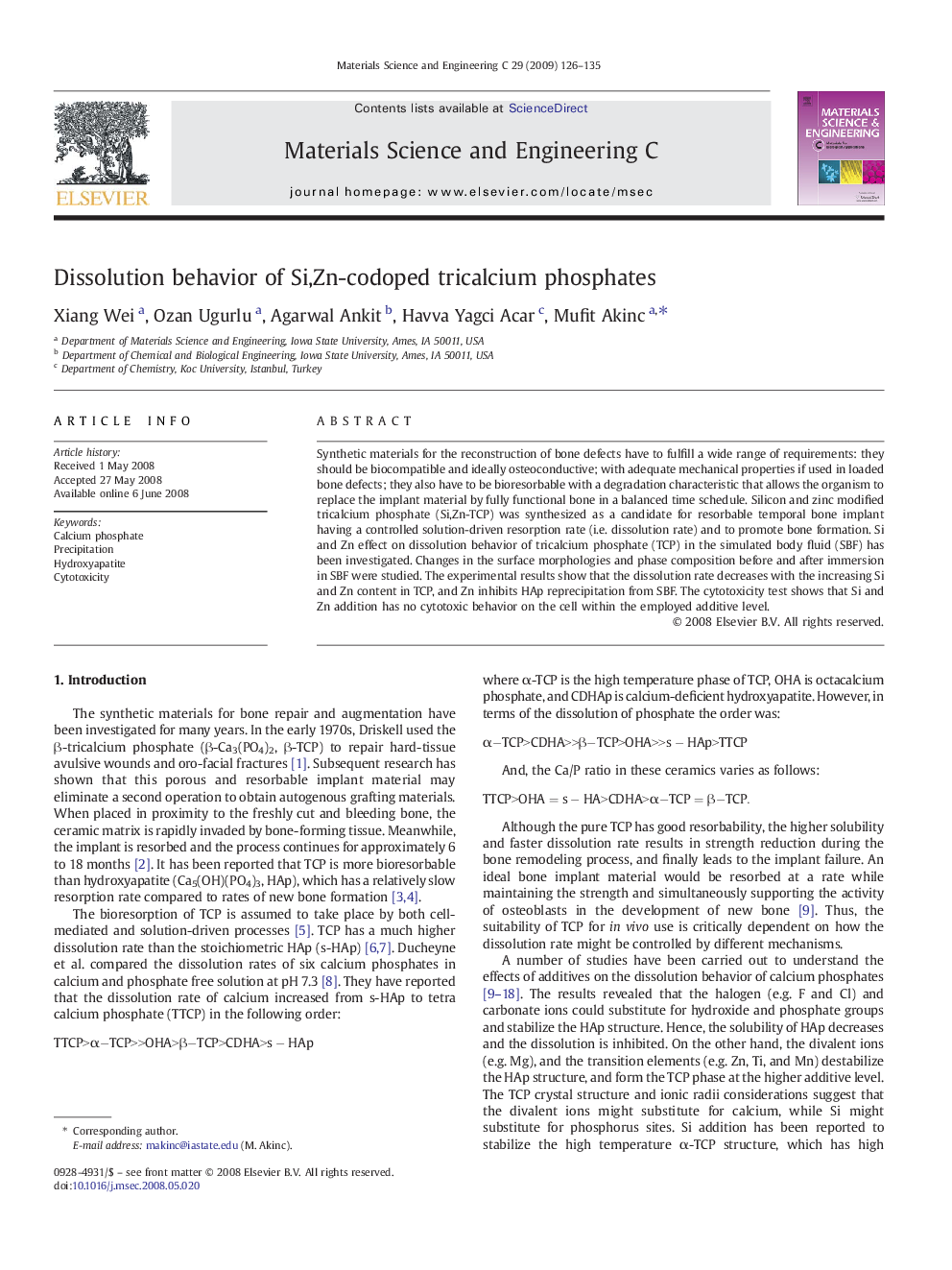| Article ID | Journal | Published Year | Pages | File Type |
|---|---|---|---|---|
| 1430485 | Materials Science and Engineering: C | 2009 | 10 Pages |
Synthetic materials for the reconstruction of bone defects have to fulfill a wide range of requirements: they should be biocompatible and ideally osteoconductive; with adequate mechanical properties if used in loaded bone defects; they also have to be bioresorbable with a degradation characteristic that allows the organism to replace the implant material by fully functional bone in a balanced time schedule. Silicon and zinc modified tricalcium phosphate (Si,Zn-TCP) was synthesized as a candidate for resorbable temporal bone implant having a controlled solution-driven resorption rate (i.e. dissolution rate) and to promote bone formation. Si and Zn effect on dissolution behavior of tricalcium phosphate (TCP) in the simulated body fluid (SBF) has been investigated. Changes in the surface morphologies and phase composition before and after immersion in SBF were studied. The experimental results show that the dissolution rate decreases with the increasing Si and Zn content in TCP, and Zn inhibits HAp reprecipitation from SBF. The cytotoxicity test shows that Si and Zn addition has no cytotoxic behavior on the cell within the employed additive level.
